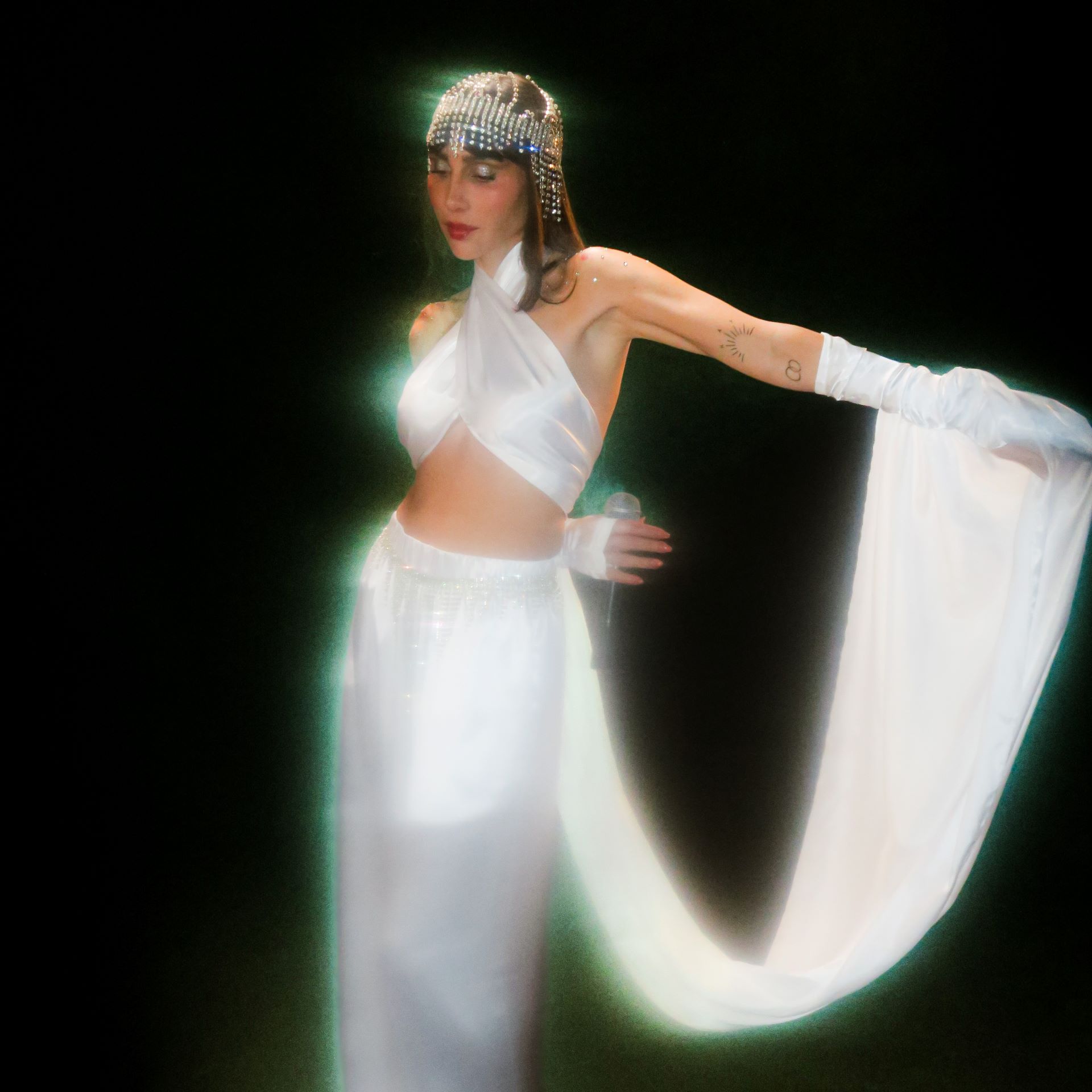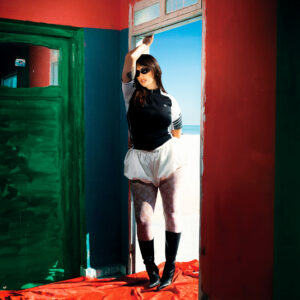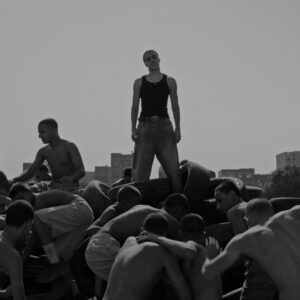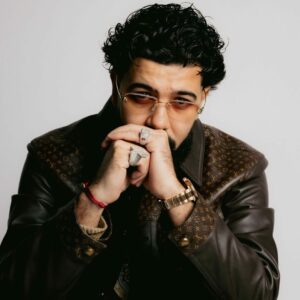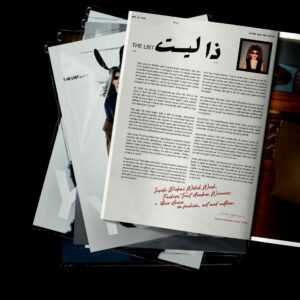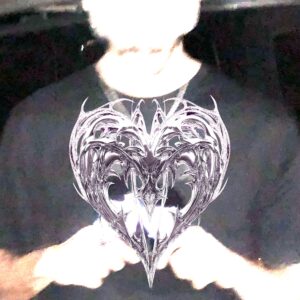Singer Dana Hourani (Instagram) and music producer Sleiman Damien have built a musical partnership rooted in trust, creativity, and a shared passion for pushing sonic boundaries. Their latest collaboration, Ma Byenkhaf Alayi, is a powerful yet playful anthem where Dana Hourani speaks to self-empowerment, blending soft melodies with bold lyrics. With gospel influences and a seamless fusion of cultures, the track is a testament to their ability to experiment while staying true to Dana’s artistic identity. We sat down with her to dive into the song’s journey, from an unexpected discovery to a soul-stirring final product.

You’ve collaborated with Sleiman on multiple projects. How long have you been working together, and what makes your creative dynamic so strong?
I’ve been working with Sleiman since the very beginning of my music journey, he’s produced every single song I’ve ever released. And that’s no coincidence. His talent isn’t just in music production, he has an incredible ability to understand artists on a deeper level, recognizing the sounds and styles they naturally gravitate toward. What makes our collaboration so special is how involved he allows me to be. Even in the technical aspects I don’t fully grasp, he always listens and somehow translates my ideas into exactly what I envision. It’s a true partnership, built on trust and creativity. Beyond all that, he’s also one of my closest friends. And honestly, what’s better than making music with someone who not only inspires you but also makes the process fun? Every project we work on feels like a passion project, and that’s what makes it so special.
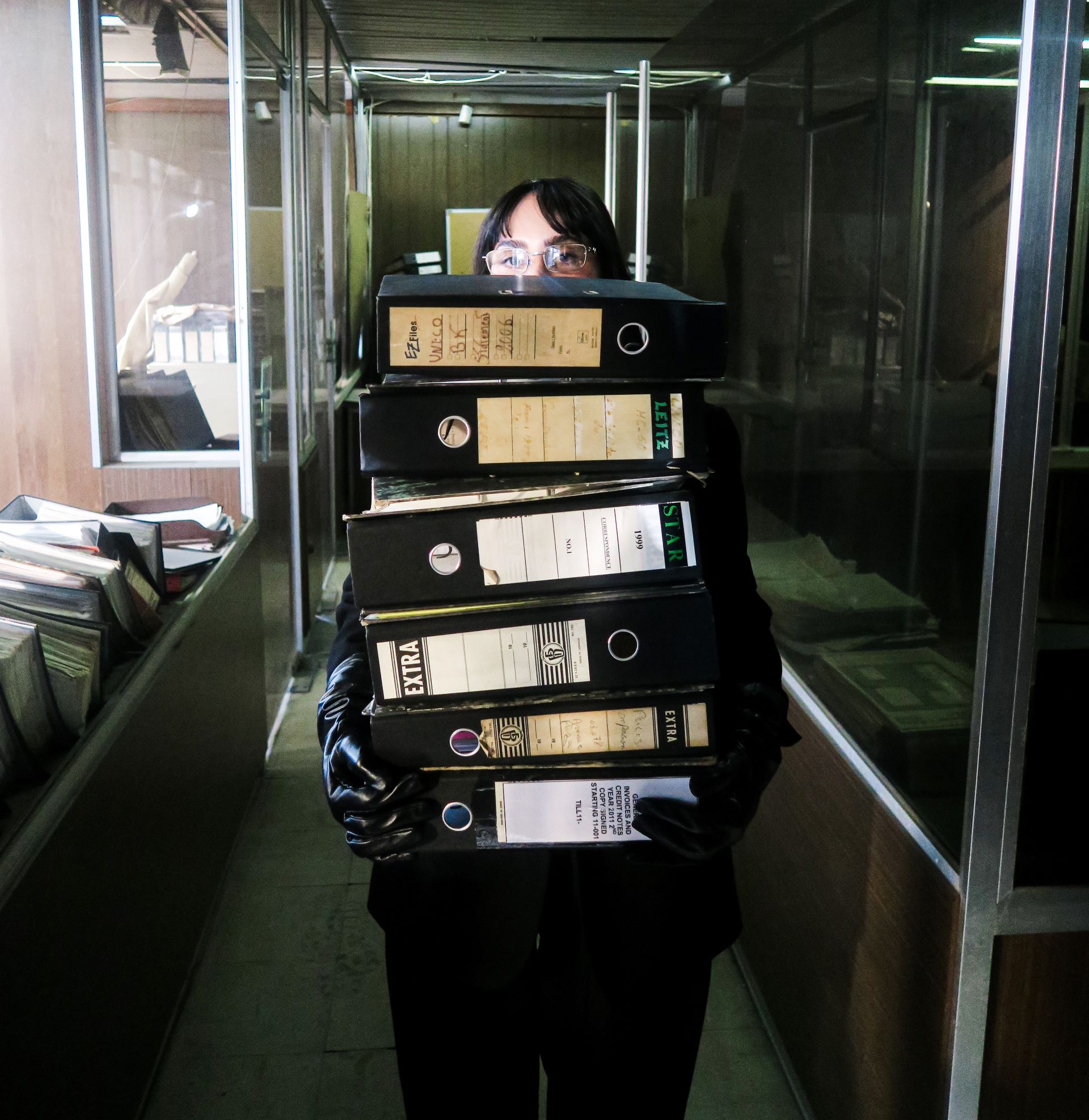
What is “Ma Byenkhaf Alayi” about, and how would you describe its sound and message?
Ma Byenkhaf Alayi is all about a woman stepping into her power, taking control of her own life, and owning her journey without fear or apology. It’s about breaking free from expectations and fully embracing who she is. What makes the song so special to me is the contrast between the sound and the message. It’s a soft ballad with a playful delivery, but the lyrics are strong, bold, and all about self-empowerment. I love that mix, it’s like a reminder that power doesn’t always have to be loud or aggressive. Strength can be graceful, and confidence can be quiet yet unshakable. That contrast is exactly what the song represents, owning your power in a way that feels natural to you.

Who wrote the song, and what inspired its lyrics?
Usually, my creative process is pretty intentional, I work closely with Sleiman and lyricists to craft songs that truly resonate with me. The themes I sing about are always personal, reflecting emotions, and experiences in a way that feels authentic. But this song came to me in a completely unexpected way. It was originally written by Zeff (Joseph Aboud) for a female artist, and by pure chance, he sent it to Sleiman for feedback while I happened to be with him. The second I heard it, something just clicked. It felt like the song was telling my story, like it was meant for me. I immediately turned to Sleiman and told him, “This song perfectly represents who I am as an artist and what my musical journey is all about.” I knew I had to make it my own. From there, we started shaping it into something that felt even more personal to me, and that’s how it ended up becoming part of my album. It was one of those moments where everything just aligned perfectly.
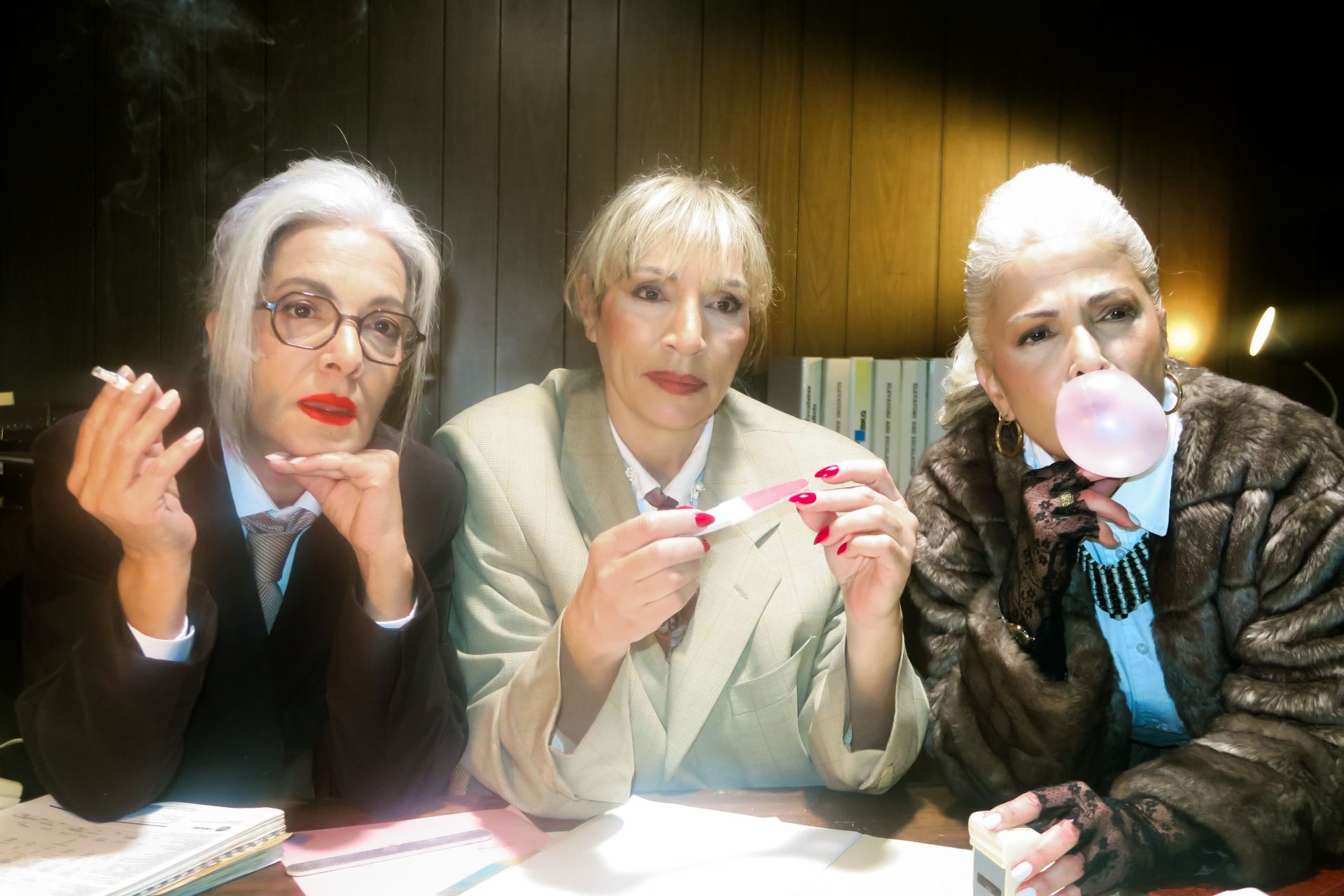
One of the most striking elements of the track is the gospel influence. How did you blend Nigerian gospel with your signature sound?
I’ve always loved gospel music growing up, so I knew I wanted to incorporate it into this song somehow. We had already agreed that the chorus needed a choir, and we specifically wanted a gospel choir to bring that powerful, soulful energy. But instead of trying to replicate the gospel sound, we wanted the real thing. So we did some research and found an incredible gospel group in Nigeria who brought the vision to life in the most authentic way. They completely understood the essence of the song and translated it beautifully. From there, it was up to Sleiman and his production skills to seamlessly weave everything together, and he did just that.
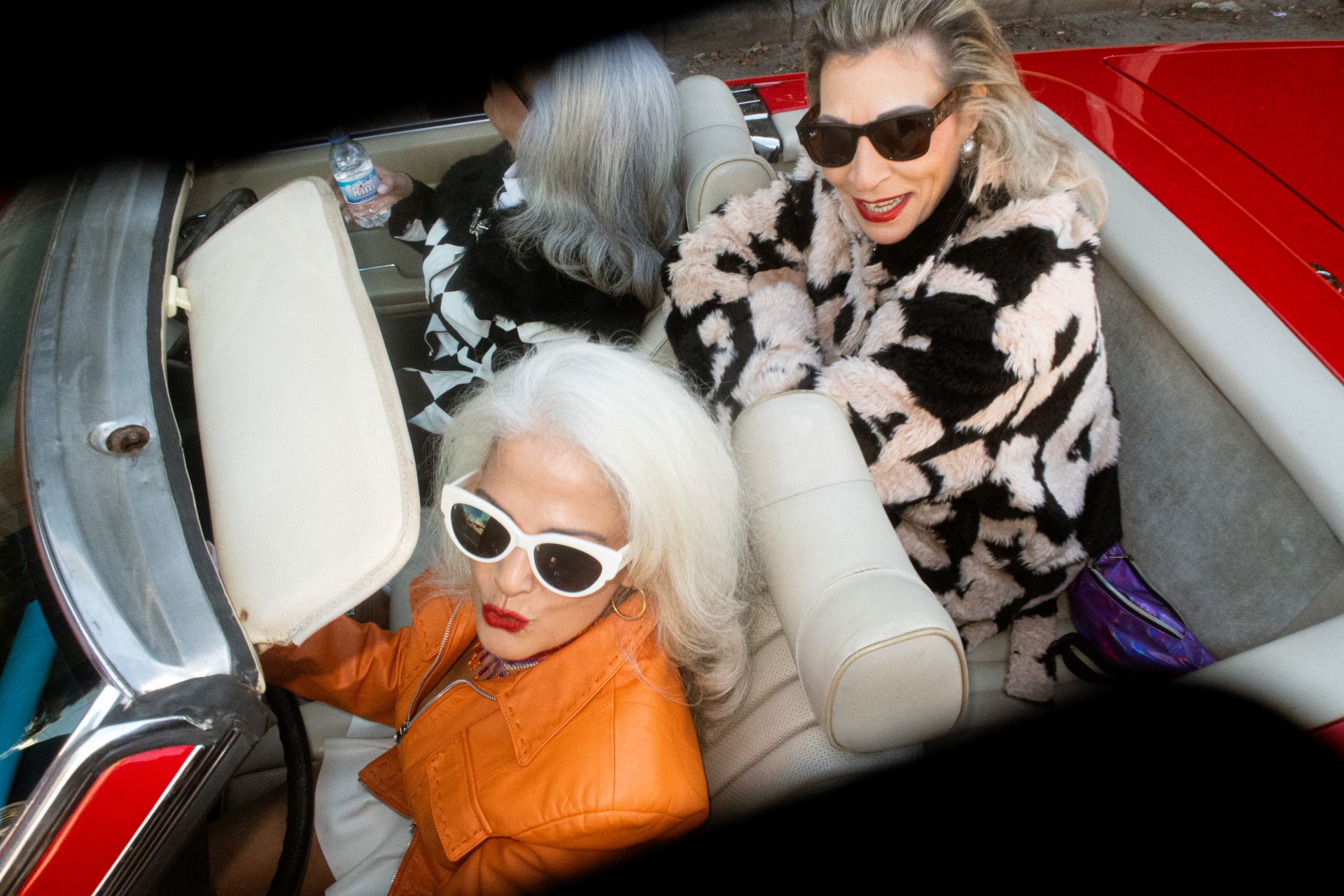
What was the most challenging part of bringing this song to life—whether musically, lyrically, or emotionally?
The hardest part of bringing this song to life was finding the right balance between strength and softness, both in the music and the emotion behind it. The lyrics are powerful and empowering, but I didn’t want the delivery to feel too heavy or dramatic. I wanted it to still feel natural, light, and fun while keeping that deep, strong message at the core. On a more personal level, this song challenged me in a new way. I had to really connect with it and make it feel like my own. It wasn’t just about singing the words, it was about finding my own truth in them and delivering them in a way that felt real to me. But also it was one of the most rewarding parts of making this song.
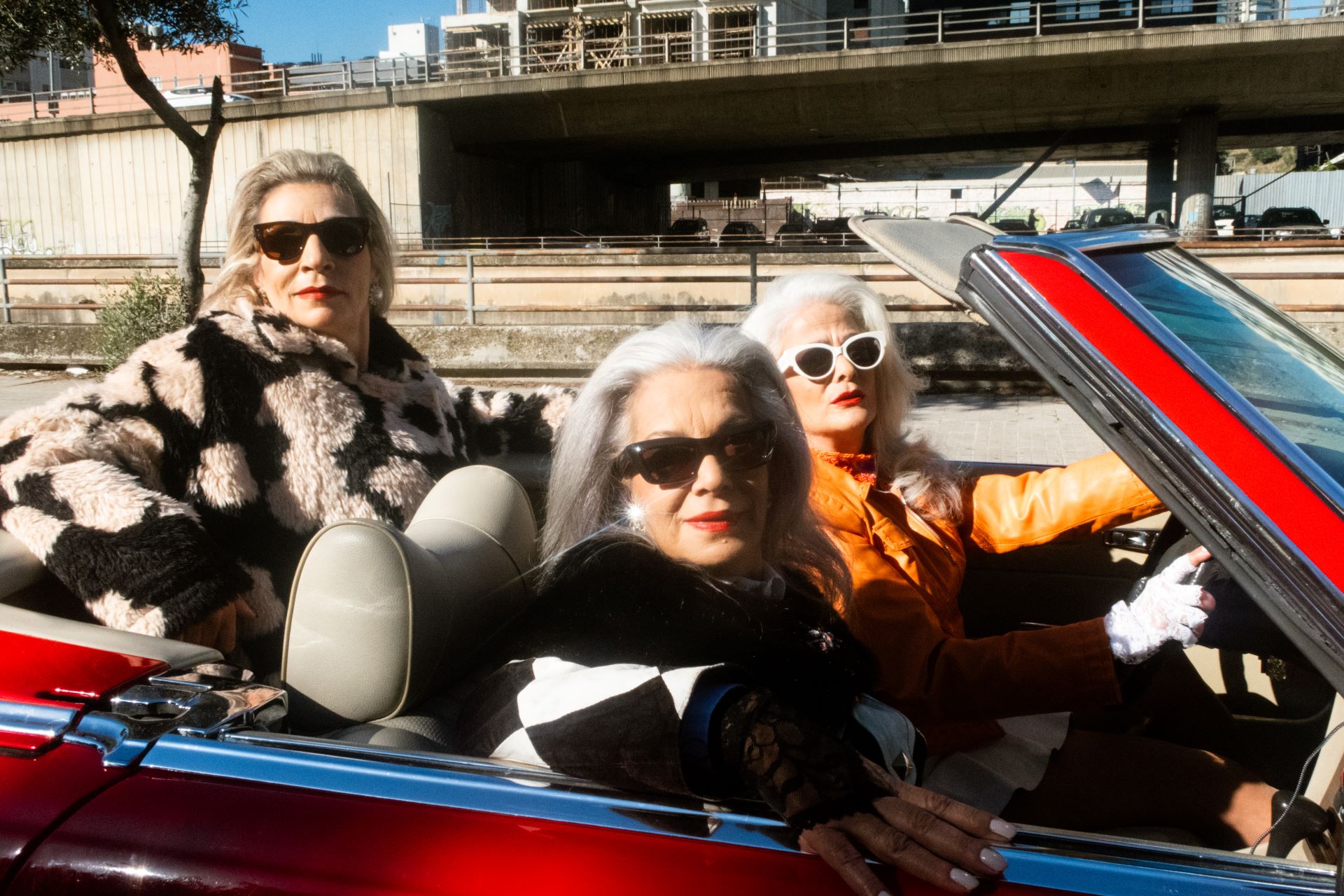
Every song has its own journey. Can you take us through the ups and downs of creating “Ma Byenkhaf Alayi“?
The best part about creating this song was that it felt like a release, especially with all the craziness happening in the world. It was my little escape, kind of like how I feel with every song I work on, it gave me a chance to step away from everything for a bit. The downside was also the same. Trying to work on it while everything around us was falling apart. It made me realize how important the timing of a song release is. I’m very mindful about when I release music and the message it carries for that particular moment in time. With everything going on, I just felt like now was the right time to drop something positive. I had this feeling that people needed a bit of an escape too, and this song could give them that.
For more stories of regional music, like this interview with Dana Hourani, visit our dedicated archives.
